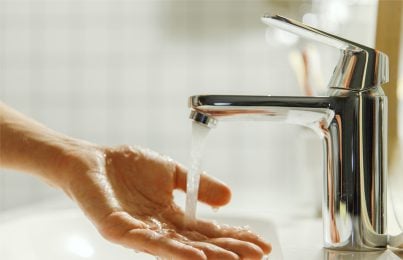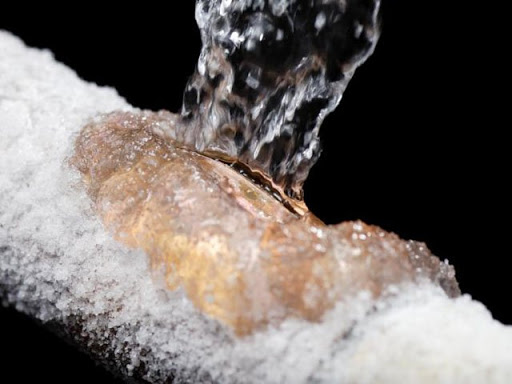How do you really feel in regards to Winterizing Your Pipes?

All homeowners who live in pleasant climates have to do their best to winterize their pipelines. Failure to do so can mean catastrophe like frozen, fractured, or ruptured pipes.
Attempt a Hair Dryer or Warmth Gun
When your pipelines are nearly freezing, your reliable hair clothes dryer or heat weapon is a godsend. Bowling warm air straight right into them may aid if the hot towels do not aid dislodge any type of working out ice in your pipes. However, do not make use of other items that produce direct flames like a strike lantern. This can lead to a bigger calamity that you can not manage. You may end up destructive your pipes while attempting to melt the ice. And in the long run, you might even end up burning your residence. Be cautious!
Open Cupboard Doors Hiding Plumbing
When it's cold outside, it would certainly be practical to open cupboard doors that are masking your pipes. Doing this small technique can keep your pipes cozy and also limit the possibly dangerous outcomes of freezing temperatures.
Take Time to Wrap Exposed Piping
One easy and also nifty hack to heat up cold pipelines is to wrap them with cozy towels. You can cover them first with towels. After protecting them in place, you can pour boiling water on the towels. Do it slowly to allow the towels absorb the liquid. You can also utilize pre-soaked towels in hot water, just don't forget to put on safety handwear covers to guard your hands from the heat.
Activate the Faucets
When the temperature declines and it seems as if the icy temperature level will certainly last, it will aid to switch on your water both inside as well as outdoors. This will keep the water moving through your plumbing systems. Additionally, the movement will reduce the cold process. Especially, there's no demand to turn it on full force. You'll end up wasting gallons of water in this manner. Instead, go for concerning 5 decreases per minute.
When Pipelines are Frozen, close Off Water
If you notice that your pipelines are totally icy or nearly nearing that phase, turn off the main water shutoff right away. You will normally find this in your basement or laundry room near the heating system or the front wall closest to the street. Turn it off today to prevent more damage.
With more water, more ice will load up, which will eventually lead to rupture pipelines. If you are uncertain concerning the state of your pipes this winter, it is best to call a professional plumber for an assessment.
All homeowners who live in warm climates need to do their best to winterize their pipelines. Failing to do so can mean catastrophe like frozen, fractured, or burst pipes. If the warm towels do not help remove any settling ice in your pipes, bowling hot air directly right into them may help. Transform off the main water shutoff instantly if you notice that your pipelines are completely icy or practically nearing that phase. With more water, more ice will certainly pile up, which will at some point lead to burst pipes.
PREVENT YOUR PIPES FROM FREEZING THIS WINTER
A Leading Cause of Property Damage
When the weather is taking a deep nose dive into the cold dreary days, the risk of your pipes freezing and potentially bursting skyrockets. Unfortunately, during these cold dreary months, burst pipes are the most common denominator for property damage. The pipes that are most at the risk are those that are in areas where it is most cold in your home. For instance, pipes located in interior places such as basements, attics, and your garage. Unfortunately, that doesn’t mean that the pipes running through your cabinets or exterior walls can’t freeze. Good news, however, is that you can do things to help prevent pipes from freezing.
How to Prevent Pipes From Freezing
Once the temperature starts to drop during the winter, you should be taking the proper measures needed to ensure that your pipes stay warm and that there is circulation of water through them. Some steps that experts may recommend could go against your better judgement when it comes to saving water and heat. However, it would go without saying that when expenses are compared, damaged pipes could put a bigger dent in your wallet than a water bill.
What Can I Do?
Keep your garage door closed. This is very important, especially if you have water supply lines running through your garage. Open your kitchen and bathroom cabinets to allow warm air to circulate through them. Allow air circulation throughout your home. Keeping the interior doors open will once again allow the warm air to circulate inside your home. Ensure your thermostat is running the same temperature throughout the night and day. If you plan to be away from home during the cold months, set your temperature no lower than 55° F. This should provide enough heat to keep the pipes warm and prevent any remaining water inside the pipes from freezing. For more of a long-term solution, add insulation to attics, basement, and other crawl spaces around your home. By allowing your faucet to drip, it will alleviate pressure in the system. This is important because the pressure that is created between the blockage and the faucet can potentially cause the pipes to burst. Allowing the faucet to drip will prevent the pressure from building up, therefore keeping the pipes from bursting. Seal any cracks, openings, and crawl spaces around your home to prevent cold air from coming inside. This keeps your pipes-not to mention your home-warmer and less susceptible to issues caused by freezing temperatures. For the pipes in your home that are easily accessible, applying electrical tape to them might prevent them from freezing over. This is a quick fix, as you can apply the tape directly to the pipe. There are two options for heating tapes. One turns on and off by itself when it senses heat is needed. The other type of heating tape needs to be applied when heat is needed and removed when not necessary. If you have exposed pipes in your home, you can check this website to take a look at a few options that would be available at a shop near you.

As a passionate person who reads on Winterizing Your Pipes, I thought sharing that piece of content was a smart idea. Enjoyed reading our review? Please share it. Help others discover it. I am grateful for your time. Visit again soon.
Immediate response required?